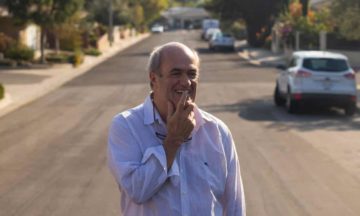Lisa Allardice in The Guardian:
 In June 2018, Colm Tóibín was four chapters into writing his most recent novel The Magician, an epic fictional biography of Thomas Mann that he had put off for decades, when he was diagnosed with cancer. “It all started with my balls,” he begins a blisteringly witty essay about his months in hospital; cancer of the testicles had spread to his lungs and liver. In bed he amuses himself by identifying the difference between blood clots (a new emergency) and cancer: “Boris Johnson would be a blood clot … Angela Merkel the cancer.”
In June 2018, Colm Tóibín was four chapters into writing his most recent novel The Magician, an epic fictional biography of Thomas Mann that he had put off for decades, when he was diagnosed with cancer. “It all started with my balls,” he begins a blisteringly witty essay about his months in hospital; cancer of the testicles had spread to his lungs and liver. In bed he amuses himself by identifying the difference between blood clots (a new emergency) and cancer: “Boris Johnson would be a blood clot … Angela Merkel the cancer.”
He has seen off both Johnson and Merkel. In the month when he hopes he will have a final scan, he has just been awarded the David Cohen prize (dubbed “the UK Nobel”) for a lifetime achievement in literature. The author of 10 novels, two short story collections, three plays, several nonfiction books and countless essays, Tóibín has been shortlisted for the Booker prize three times and won the Costa novel award in 2009 for Brooklyn, about a young Irish woman who emigrates to New York in the 1950s, made into an award-winning film in 2015. He is surely Ireland’s most prolific and prestigious living writer.
Broodingly striking in appearance – in a movie he would be the gangster with a kind heart – he is animated, gracious and gossipy in conversation: we are on a video call from Los Angeles, where he spends part of the year with his boyfriend, editor Hedi El Kholti. He is very much alive (he played tennis yesterday). Meeting Tóibín in person (in more normal times) is to be struck by the disconnect between this ebullient, expansive raconteur and the spare, mournful fictional worlds for which he is famous. His short stories, in particular, are as steeped in gentle misery as his native Wexford is in rain.
More here.
